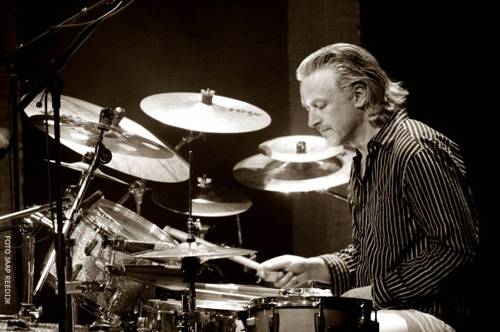
FAQ About Role of Afro-Cuban Folklore in Modern Theatre

What is Afro-Cuban folklore?
Afro-Cuban folklore refers to the cultural narratives, music, dance, rituals, and oral traditions derived from the African heritage of the Cuban people. This folklore is heavily influenced by African spiritual beliefs and practices, particularly those from the Yoruba and Congo ethnic groups, which were brought to Cuba during the transatlantic slave trade. Key elements include Santería (a syncretic religion combining Yoruba beliefs with Catholicism), music genres like rumba and son, and various mythological stories and deities.

How is Afro-Cuban folklore integrated into modern theatre?
Afro-Cuban folklore is integrated into modern theatre through the use of narratives, themes, music, dance, and traditional costumes. Playwrights and directors often draw on Afro-Cuban mythology and religious practices to create rich and dynamic performances. Traditional music and rhythm are incorporated to enhance storytelling, while dance elements such as rumba or orisha dances are used to convey emotions and cultural themes. Moreover, scripts might incorporate African spiritual beliefs and Afro-Cuban oral traditions to structure the narrative and character development.

What are some examples of Afro-Cuban folklore being used in theatre?
Examples of Afro-Cuban folklore in theatre include plays like "Maria Antonia" by Eugenio Hernández Espinosa, which incorporates elements of Santería and Afro-Cuban identity, and "La Casa de Bernarda Alba" adaptations that integrate Afro-Cuban musical and dance expressions. Productions in Cuba and internationally often use traditional Afro-Cuban folklore to explore themes of identity, resistance, and cultural heritage.

Why is Afro-Cuban folklore significant in contemporary theatre?
Afro-Cuban folklore is significant in contemporary theatre as it provides a rich cultural resource that informs narratives and performance styles. It offers diverse perspectives and storytelling techniques that challenge conventional narratives and bring attention to African influence in Latin America. Utilizing Afro-Cuban folklore can also foster a deeper understanding of cultural identity, heritage, and the ongoing socio-political issues faced by Afro-Cuban communities. Moreover, it resonates globally as part of the broader dialogue on race, culture, and identity.

How does Afro-Cuban folklore influence the narrative of a play?
Afro-Cuban folklore influences play narratives by providing mythological structures, archetypes, and themes that are deeply rooted in African and Cuban traditions. Themes like spirituality, community, and the supernatural often feature prominently, shaping character journeys and conflicts. The folklore's rich tapestry of gods, spirits, and heroes forms a backdrop against which modern stories can be set, making the narratives more layered and culturally rich.

What role does music play in the theatrical adaptation of Afro-Cuban folklore?
Music plays a crucial role in the theatrical adaptation of Afro-Cuban folklore by enhancing the emotional and cultural depth of performances. Traditional Afro-Cuban music, characterized by its rhythmic complexity and use of percussion instruments, is often integral to storytelling, setting the mood, and providing cues for dramatic shifts. Music is used to summon spirits, mark transitions, and celebrate the communal and participatory nature of Afro-Cuban culture.

Are there any challenges associated with incorporating Afro-Cuban folklore into theatre?
Yes, there are challenges, such as cultural appropriation and the potential for misrepresentation. Artists must navigate presenting these narratives respectfully and authentically, ensuring they honor the origins and significance of the folklore. Additionally, there is a challenge in effectively translating oral traditions and complex spiritual beliefs into a theatrical format without losing their essence. Sensitivity and collaboration with knowledgeable cultural practitioners are key to overcoming these challenges.

How has the perception of Afro-Cuban folklore in theatre changed over time?
The perception of Afro-Cuban folklore in theatre has shifted from being marginalized to being celebrated and recognized for its cultural richness. Initially, theatrical applications of Afro-Cuban folklore were often overlooked or simplified. However, there is now greater appreciation and scholarly interest in these narratives as valuable cultural expressions that reflect a blend of historical, spiritual, and social influences.

What is the impact of incorporating Afro-Cuban folklore on audiences?
Incorporating Afro-Cuban folklore in theatre can create a powerful impact on audiences by providing immersive cultural experiences and fostering connections with Afro-Cuban heritage. It opens opportunities for dialogue about cultural diversity and historical influences while offering new aesthetic perspectives. Audiences may gain a deeper appreciation for Afro-Cuban traditions and their relevance to contemporary social and cultural issues.

Which theatrical elements are most influenced by Afro-Cuban folklore?
Key theatrical elements influenced by Afro-Cuban folklore include narrative structure, character development, music, dance, and costume design. Folkloric themes may dictate the storyline while character archetypes reflect figures from Afro-Cuban myths. Music and dance integrate traditional elements, and costumes often reflect the spiritual and ritualistic aspects of the folklore, enhancing the authenticity and depth of the performance.

How do modern playwrights research Afro-Cuban folklore for their works?
Modern playwrights researching Afro-Cuban folklore often engage in comprehensive studies of historical texts, oral traditions, and existing literature on Afro-Cuban culture. They may collaborate with cultural practitioners, historians, and scholars who specialize in Afro-Cuban studies. Additionally, attending cultural events, rituals, and performances allows playwrights to experience the folklore firsthand. This research ensures that their works are informed, respectful, and authentically represent the folklore's spirit.

Can Afro-Cuban folklore in theatre promote cultural understanding?
Yes, Afro-Cuban folklore in theatre can significantly promote cultural understanding. By showcasing the stories, music, and dance traditions of Afro-Cuban culture, theatre can serve as an educational platform that increases awareness and appreciation of cultural diversity. It encourages audiences to explore and understand the historical and social contexts that have shaped these traditions, thus fostering mutual respect and cultural dialogue.

What makes Afro-Cuban folklore unique compared to other folklore in theatre?
Afro-Cuban folklore is unique in theatre due to its rich syncretism, blending African, Indigenous, and Spanish cultural elements. This provides a distinct narrative and aesthetic style characterized by vibrant music, complex rhythms, and spiritual themes. Its unique spiritual narratives, particularly those related to Santería and orisha worship, offer distinctive stories and characters compared to other folklore traditions, enriching theatrical productions with depth and variety.

How do Afro-Cuban theatre practitioners ensure cultural authenticity in their work?
Afro-Cuban theatre practitioners ensure cultural authenticity by engaging deeply with original cultural texts, oral traditions, and current cultural expressions within the Afro-Cuban community. They often collaborate with traditional practitioners and scholars to gain insights and verify interpretations. Participating in cultural rituals and leveraging personal or community experiences also help maintain authenticity while adapting folklore for a larger audience.

How is the global audience reacting to Afro-Cuban folklore in modern theatre?
Global audiences have shown increasing interest and appreciation for Afro-Cuban folklore in modern theatre due to its vibrant storytelling and rich cultural heritage. Many audiences find its music, dance, and spiritual themes compelling and new, broadening their understanding of Cuban and African diasporic cultures. Critical acclaim and popular interest in productions featuring Afro-Cuban folklore highlight its growing influence and acceptance on the global stage.

What are some modern productions that highlight Afro-Cuban folklore?
Modern productions that highlight Afro-Cuban folklore include works by Cuban theatre companies such as Teatro Avante and productions featured at the International Festival of New Latin American Theatre in Havana. These productions often incorporate traditional elements of Afro-Cuban culture into contemporary narratives, utilizing folklore to enhance storytelling and theatrical experience. Internationally, adaptations and innovative productions continue to explore this folklore's rich potential in new and engaging ways.

What impact does Afro-Cuban folklore have on Cuban national identity?
Afro-Cuban folklore plays a crucial role in shaping Cuban national identity by underscoring the African roots and cultural diversity present within Cuba. It highlights the significant contributions of Afro-Cuban communities to national culture and fosters pride and recognition of this heritage. As these narratives gain prominence in contemporary theatre, they reinforce the importance of Afro-Cuban traditions in the broader narrative of Cuban identity and history.

Has Afro-Cuban folklore influenced theatrical movements outside Cuba?
Yes, Afro-Cuban folklore has influenced theatrical movements outside Cuba by inspiring international playwrights, directors, and performers to explore its themes and narratives. The unique blend of African spirituality, vibrant musicality, and cultural storytelling has been adapted in various forms, contributing to global theatre by providing new perspectives and enriching cross-cultural dialogue. This influence is seen in multicultural theatre productions and festivals that embrace Afro-Cuban elements as part of a diverse artistic exploration.

How do cultural festivals contribute to the spread of Afro-Cuban folklore in theatre?
Cultural festivals, such as the International Festival of New Latin American Theatre, play a pivotal role in spreading Afro-Cuban folklore in theatre by providing platforms for performances that highlight these themes. They bring together a diverse audience and foster exchanges between artists from different backgrounds. These festivals showcase the vibrancy and dynamism of Afro-Cuban narratives, enhancing global appreciation and understanding while encouraging innovative theatrical applications.

What future trends are anticipated for Afro-Cuban folklore in modern theatre?
Future trends for Afro-Cuban folklore in modern theatre include increased integration with digital media and technology, allowing for immersive experiences that highlight its musical and rhythmic elements. There's also potential for greater cross-cultural collaborations, as directors and playwrights from various backgrounds draw on Afro-Cuban themes to address universal issues of identity, culture, and spirituality. As awareness and appreciation continue to grow, more innovative and diverse applications of this folklore in theatre are anticipated.
